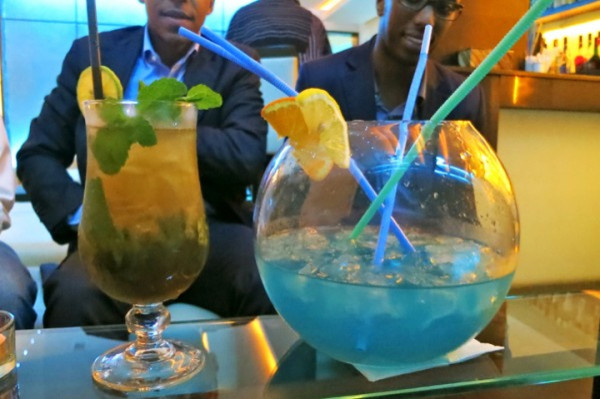Drinking Themselves Into Oblivion: Alcoholism A National Scourge In Kenya

The nationwide strike by teachers in Kenya over a wage dispute, already three weeks old, is apparently leading to some harmful and self-destructive behavior by students – excessive drinking.
The Standard newspaper of Kenya reported that more than 1,000 underage people were arrested after police raided bars in Nairobi on Sunday evening. Police deployed their officers following complaints that young people were gathering in bars and clubs to drink, leading to many incidents of disorderly conducts and attempted muggings of passersby.
Patrick Oduma, the central chief of police in Nairobi, told the paper that his jail cells were filled to capacity with inebriated children, forcing him to release some of the inmates. The legal drinking age in Kenya is 21.
“It is shocking to arrest such a big number of children from bars and clubs. They were busy dancing and some taking alcohol, smoking bhang [cannabis] and cigarettes, which is wrong,” he said. “We intend to charge the operators of [bars] where these children were arrested and even apply for the cancellation of their licenses.” According to reports, the children – most of whom were high – were laughing and shouting as they were taken away in the police vans.
The BBC said, however, that Oduma blamed the government. "It is the government which should be blamed for not being keen to resolve the teachers’ strike," he said. "Instead of playing politics, why not pay the teachers and they will go back to class and our children will definitely stream back to school."
Teachers are demanding dramatically higher salaries – on the order of a spike of between 100 percent and 300 percent of their current pay rate. The government has offered only 4 percent salary hike, saying it cannot afford to pay the scale of wages they want.
On a broader scale, the abuse of alcohol – both legal and illegal – by people of all ages is a serious problem across all of Kenya. The World Health Organization estimated last year that 2.5 million people die every year around the globe from alcohol abuse – and this phenomenon has spread to youth in the developing world. The Kenyan National Campaign Against Drug Abuse Authority, or NACADA, warned that one-half of all alcohol and drug abusers in Kenya are between 10 and 19 years old.
“The alcohol problem is catastrophic. It is a disaster. Especially in Central Province and the areas around Nairobi, the alcohol problem is really, really huge," Boniface Ndirangu, who runs two treatment centers in Nairobi and one in Mombasa, told Voice of America. "It’s been going on for 10 years now, generations are wasted, young men have become almost impotent. ... Alcoholism [leads to] many issues of unemployment, disintegration of the cultural ways of living of the past, extreme capitalism. I think there are many reasons why this has happened, but it is catastrophic. Many people are drinking very cheap alcohol, and that is dangerous for their health.”
Indeed, one factor exacerbating the alcoholism crisis is the easy availability of cheap home-made brew, called chang’aa, which contains methanol. Consumption of chang’aa, which means “kill me quick,” can lead to blindness and even death. The problem is particularly acute in poor urban and rural areas.
Also, students, under extreme pressure to succeed in a country with a 50 percent unemployment rate, often abuse alcohol. Tony Njeru, a treatment specialist, told VOA: “People in schools are so focused on passing exams that they have actually missed out on so many other things that they can do, that can make their life rich in school. If you ask a high school kid today whether he knows any art gallery in Nairobi, he’ll tell you he doesn’t know. But he knows all the pubs, all the leading pubs, he can count for you, there are 20, 30, 40 different pubs in the city.”
But a growing middle class hungering for upscale bars and the urban lifestyle is also fueling the crisis. Alcoholism also raises the risks of drinkers contracting the HIV virus and other sexually transmitted diseases. "The class of clubbing youth is expanding by the day as trendy and chic beer and music joints spring up in major towns," Juma Kimani, a counselor with Alcoholics Anonymous in Nairobi, told the IRIN news agency. "Booze drives the mind and equips it with dangerous machismo; heavy drinkers become immune to the anti-HIV messages in their pursuit of pleasure."
© Copyright IBTimes 2025. All rights reserved.





















